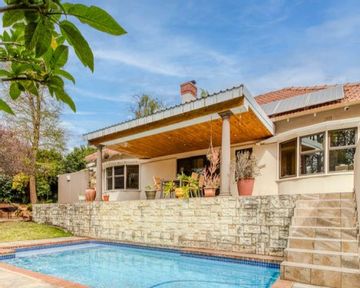South Africa’s property market: A balancing act between recovery and affordability
The South African property market is entering a new chapter, characterized by cautious optimism and subtle shifts in activity. Despite encouraging signs of renewed interest, house prices remain relatively stagnant, leaving buyers, sellers, and industry professionals wondering: What’s next for the property market?
Let’s dive into the latest insights from the FNB House Price Index and Estate Agents Survey to explore where the market stands and what it could mean for you.
House prices: A flatline amid rising interest
In October 2024, the FNB House Price Index (HPI) reported a modest year-on-year growth of just 0.3%, down slightly from September’s 0.5%. On the surface, this might suggest a sluggish market, but there’s more to the story.
Buyer interest is on the rise, driven by improving sentiment and expectations of future interest rate cuts. However, affordability remains a significant hurdle. Many South Africans are still recovering from the cost-of-living crisis, prioritizing financial caution over-stretching budgets for property purchases.
What does this mean for buyers?
-
For now, the market offers a unique opportunity to secure homes at relatively stable prices.
-
Easing inflation and declining borrowing costs may make property purchases more accessible in the coming months.
A closer look at market activity
The latest Estate Agents Survey paints a cautiously optimistic picture. Activity levels in Q3 2024 edged up to 5.8 (on a 0-10 scale), a slight improvement from the previous quarter's 5.6. This suggests the market is gradually recovering after a turbulent period.
Who’s driving this recovery?
-
Middle-to-higher-priced segments: Market sentiment has significantly improved in these areas, with activity ratings climbing from 5.1 to 5.4.
-
Affordable housing: This sector has remained resilient but saw a slight dip in activity due to stricter lending standards and elevated interest rates.
Where are the markets thriving?
South Africa’s property landscape is not uniform, with activity levels varying across provinces:
-
Gauteng: A standout performer, benefiting from falling home prices that attract buyers.
-
Western Cape: A similarly strong showing, bolstered by consistent demand.
-
Eastern Cape and KwaZulu-Natal: A slight cooling of activity, likely a recalibration after previous highs.
If you’re house-hunting in Gauteng or the Western Cape, now might be the perfect time to act, as market dynamics favor buyers in these regions.
Selling trends: shorter times and persistent pressure
Good news for sellers—homes are spending less time on the market. The average selling time has dropped to 11 weeks and 2 days, down from 12 weeks in the previous quarter. This is particularly true for higher-priced properties, where increased buyer interest is evident.
However, financial pressure continues to dominate the reasons for selling:
-
23% of sellers are downsizing due to financial constraints.
-
22% of sales are driven by retirees and others looking to scale down their lifestyles.
What’s next for the property market?
Looking ahead to the final months of 2024 and beyond, there’s reason for cautious optimism:
-
58% of estate agents anticipate stronger market momentum in Q4.
-
Interest rate cuts may begin to filter into the market, particularly benefiting the affordable housing sector.
-
Regional disparities are expected to continue, with areas like Gauteng and the Western Cape leading the recovery.
Key takeaways for buyers and sellers
For buyers, the current market offers a chance to capitalize on stable prices while preparing for possible affordability improvements in the near future. Keep an eye on regions like Gauteng, where opportunities may be more abundant.
For sellers, shorter selling times and increased activity in higher-priced segments suggest that the market is slowly turning in your favor—especially if you’re downsizing or relocating.
The South African property market is finding its footing amid economic recovery. Whether you’re looking to buy, sell, or simply stay informed, understanding these market dynamics can help you make confident decisions in this evolving landscape.
You can read the full FNB Property Barometer and other property index reports here

